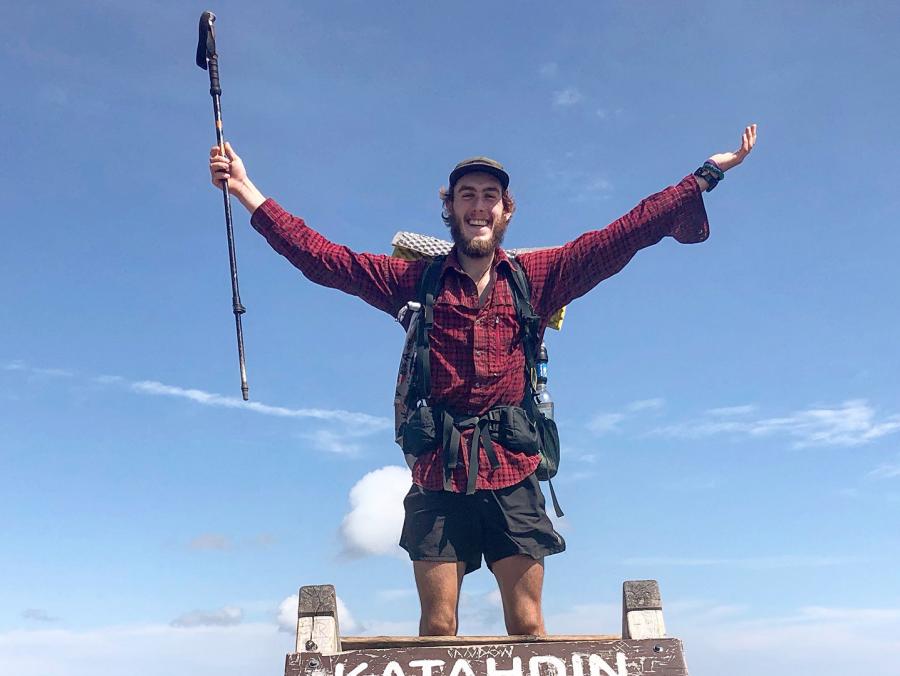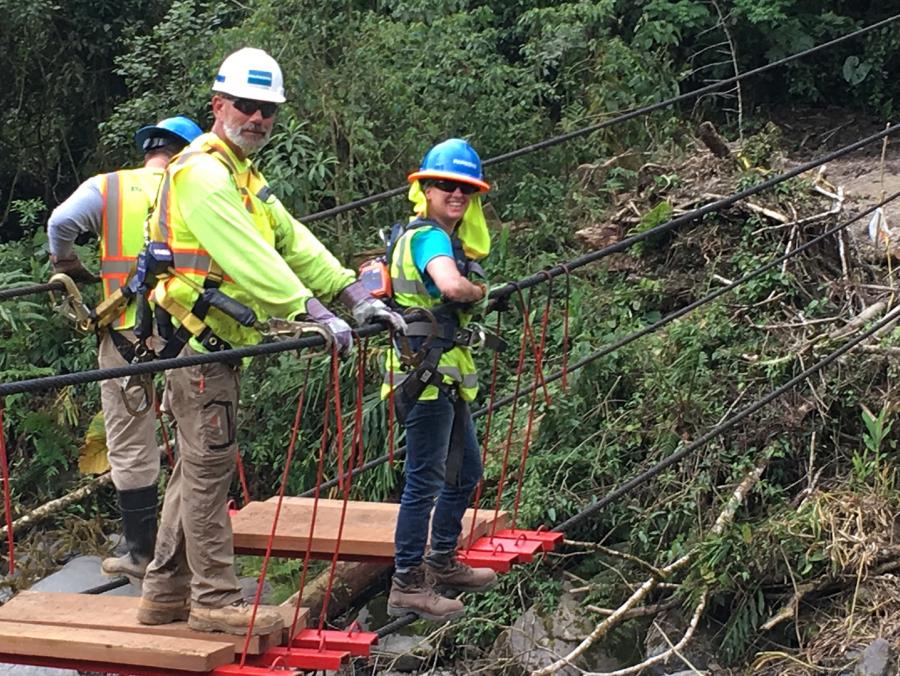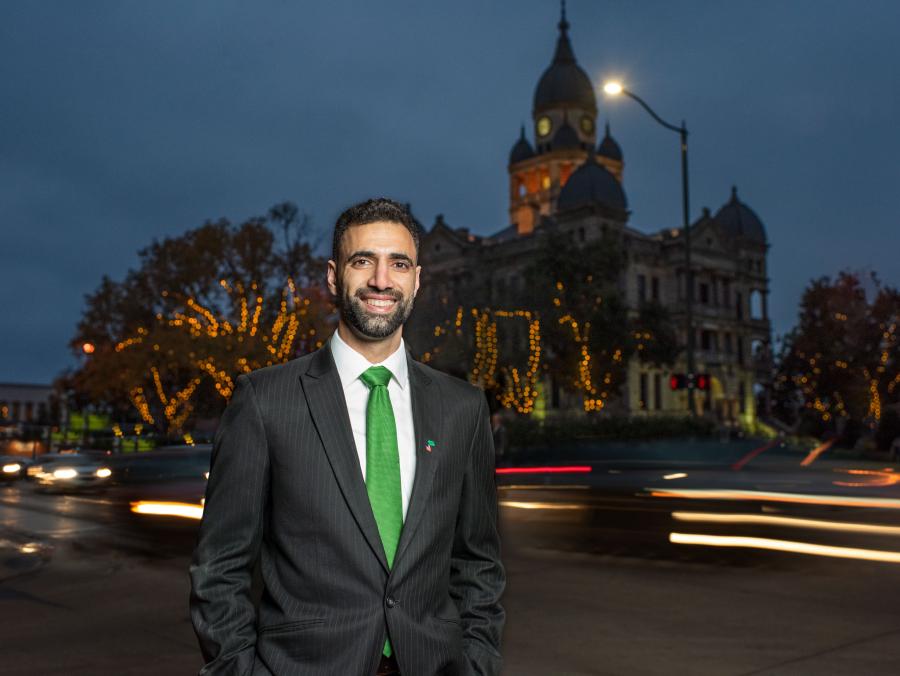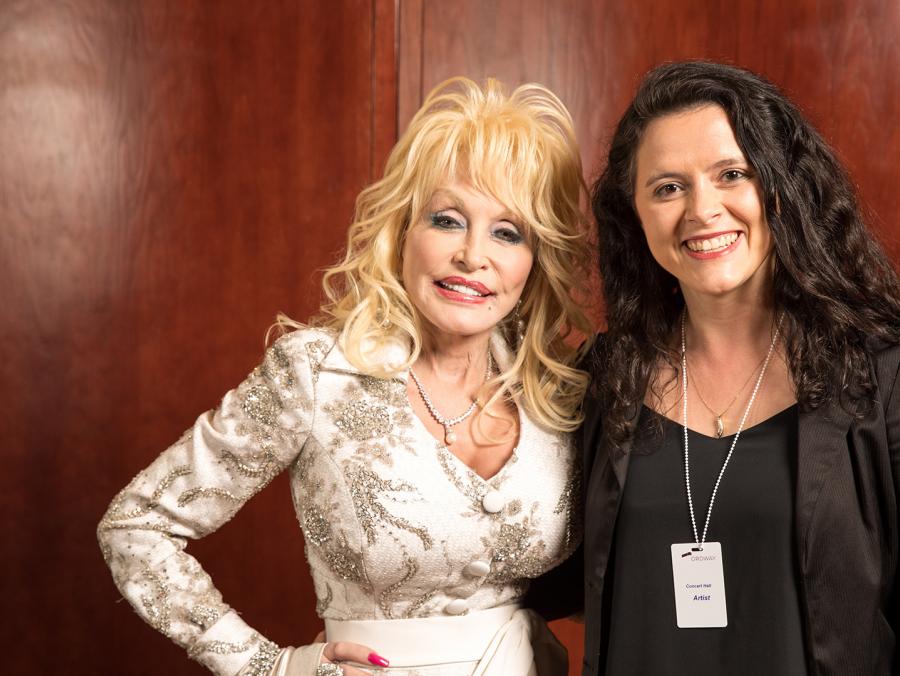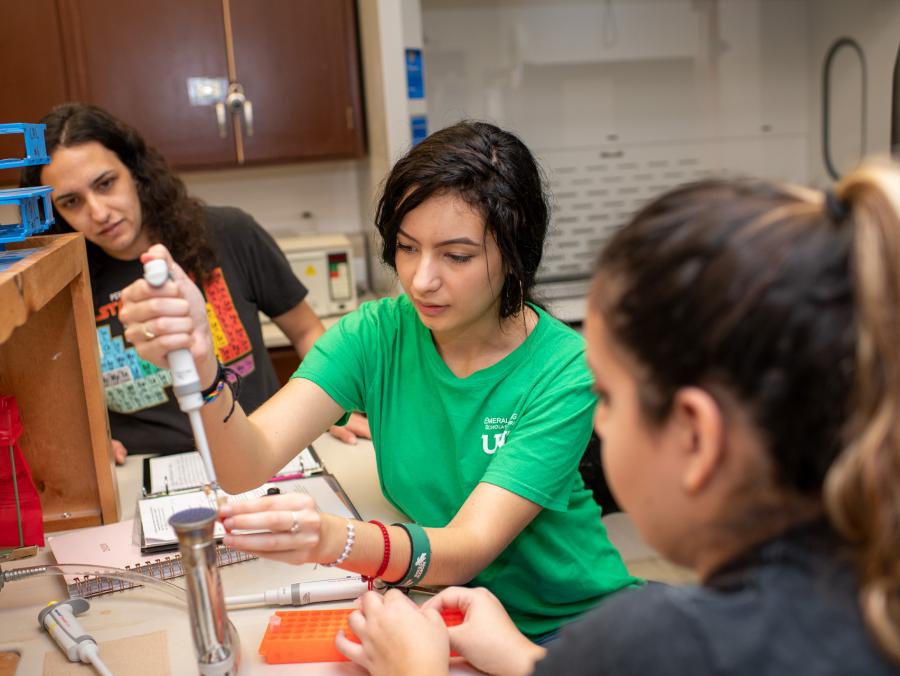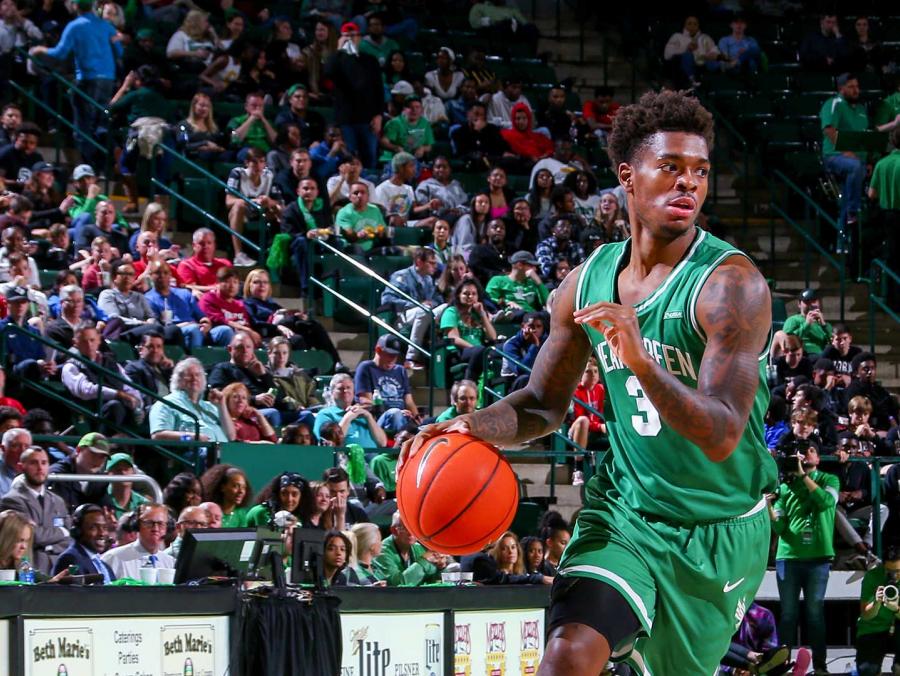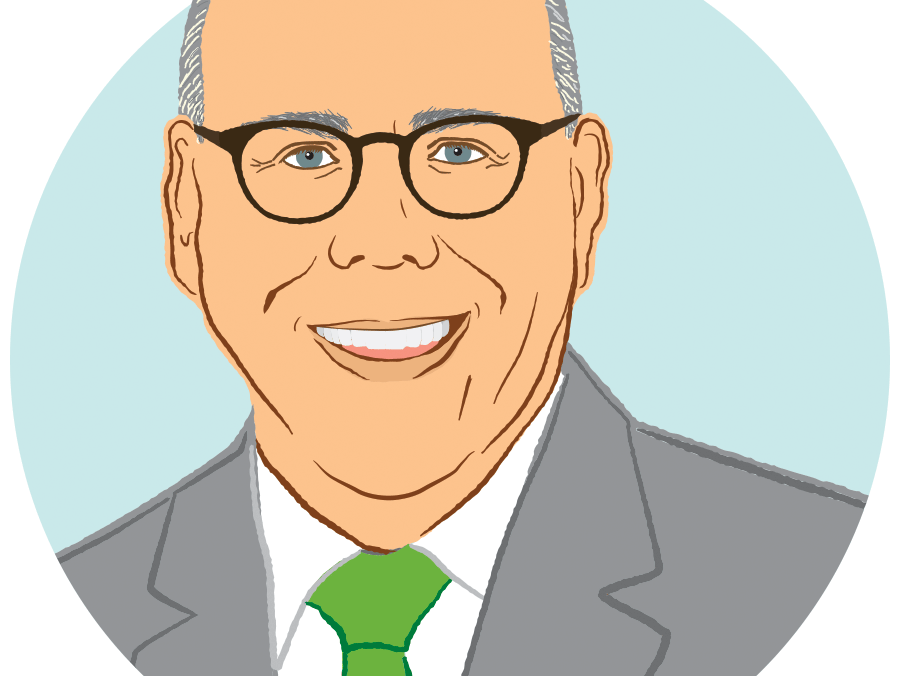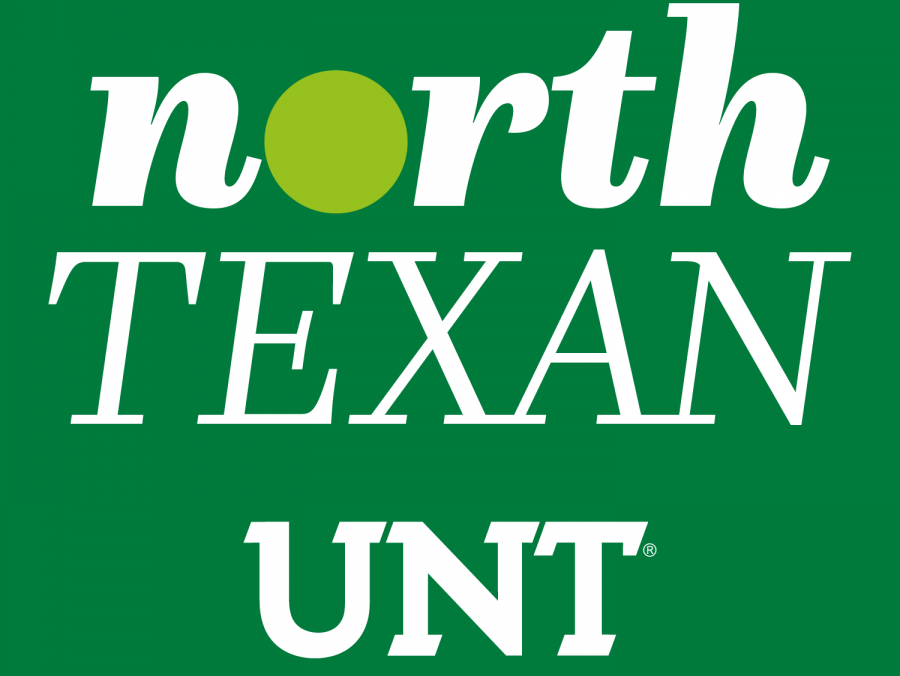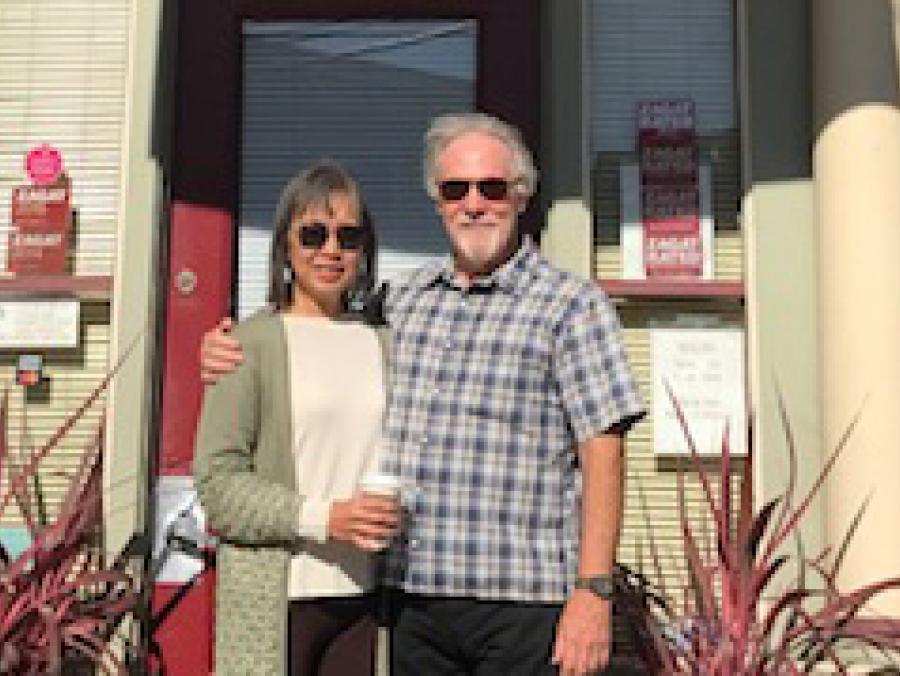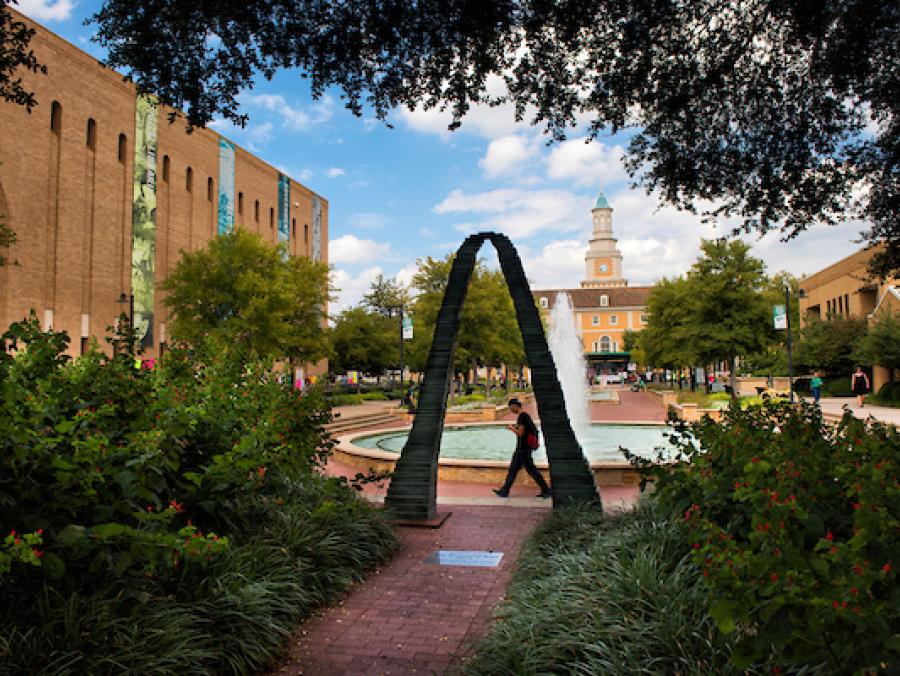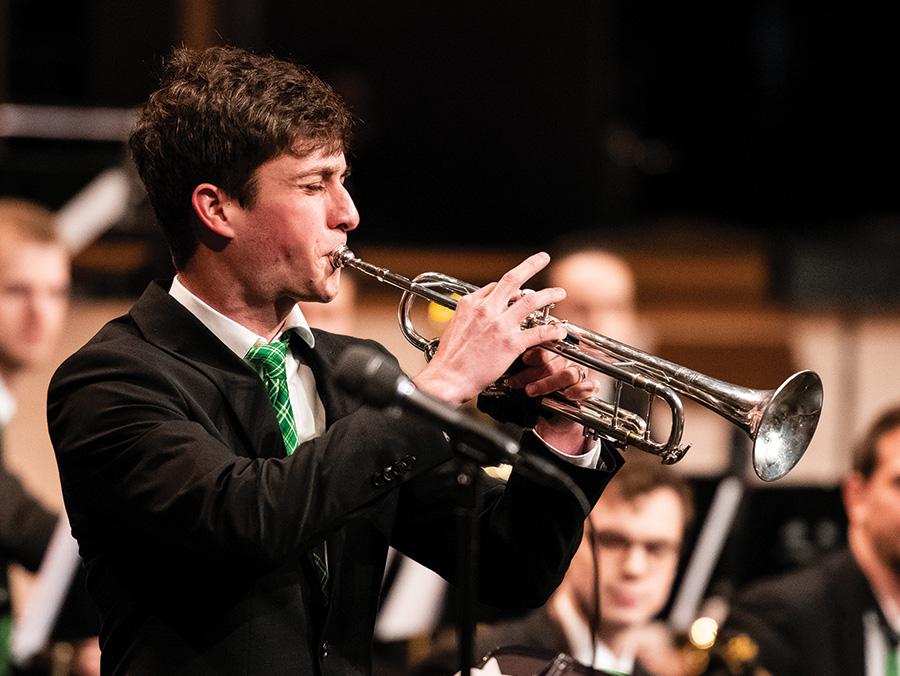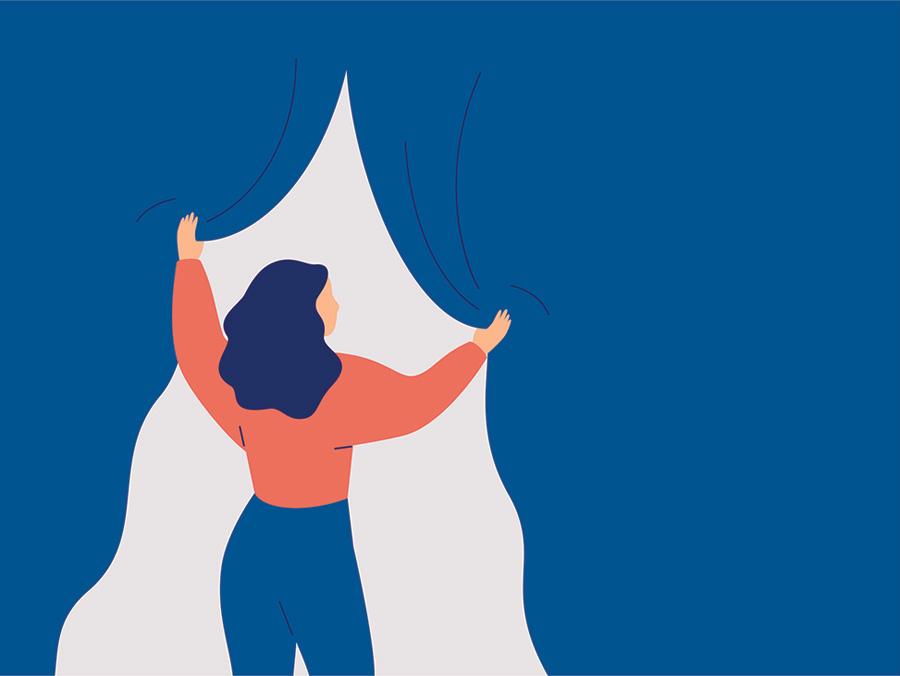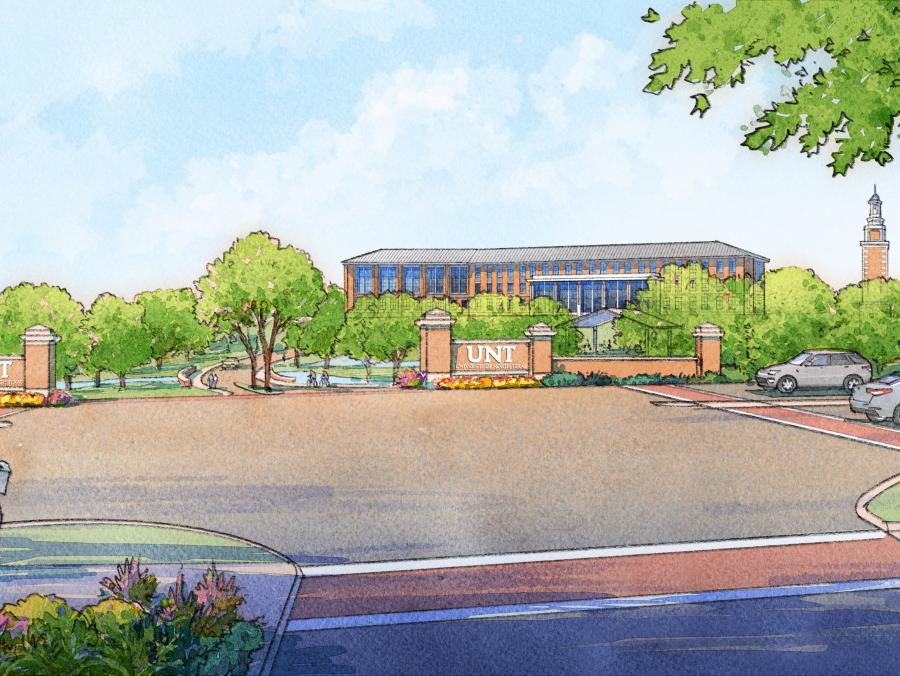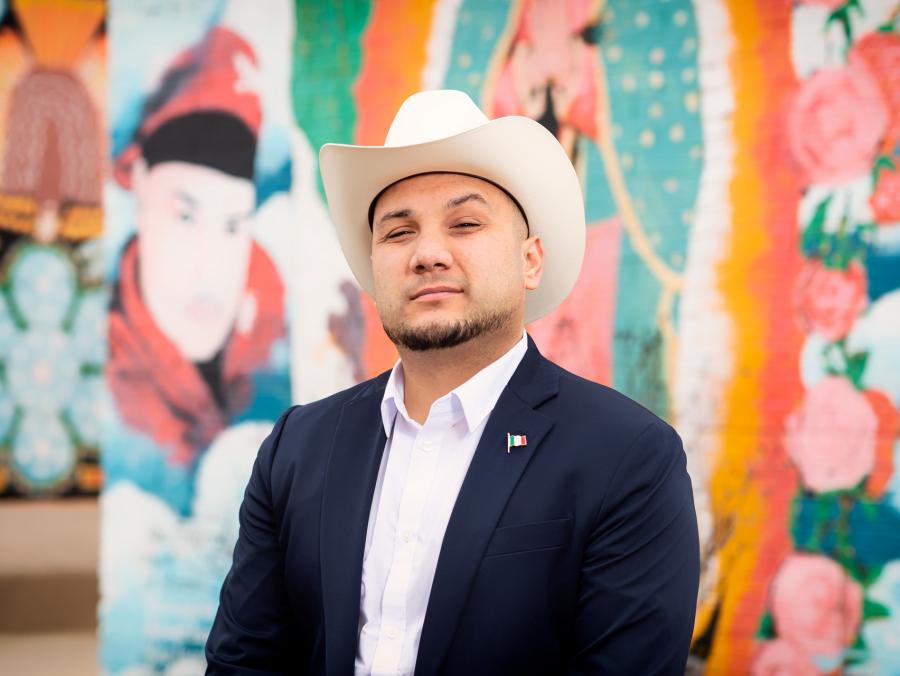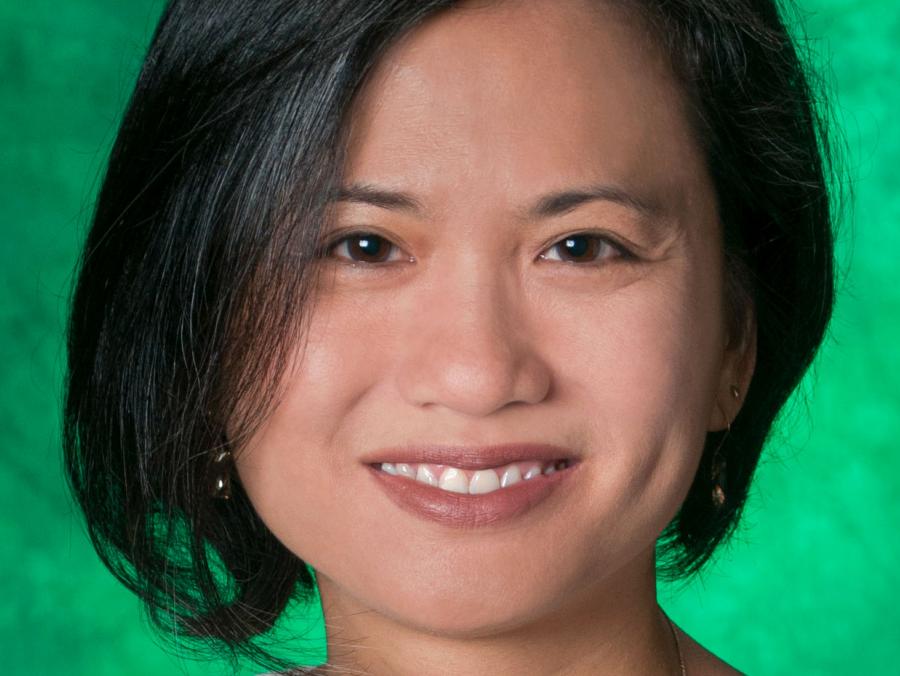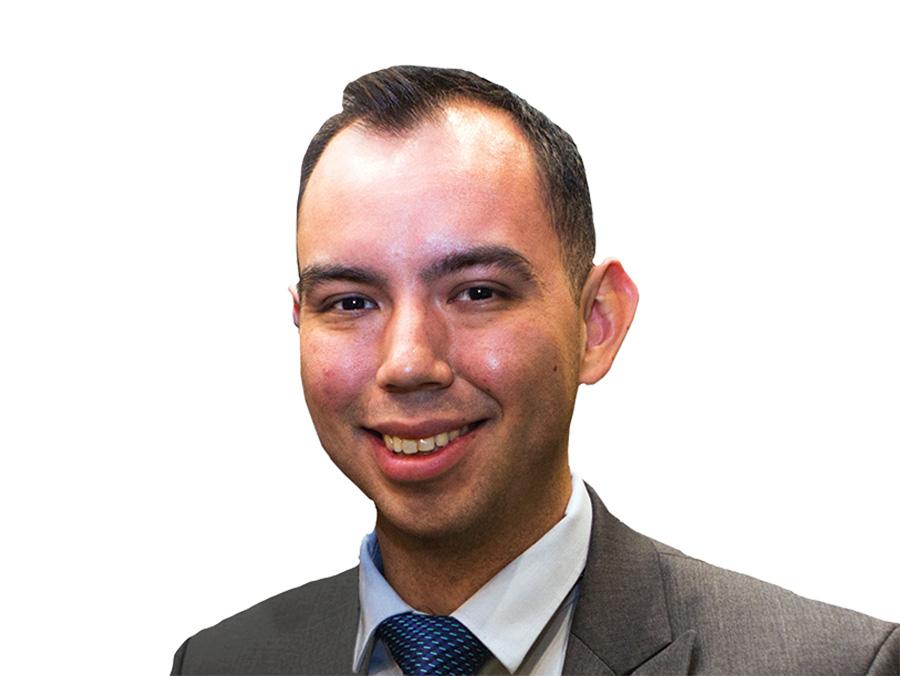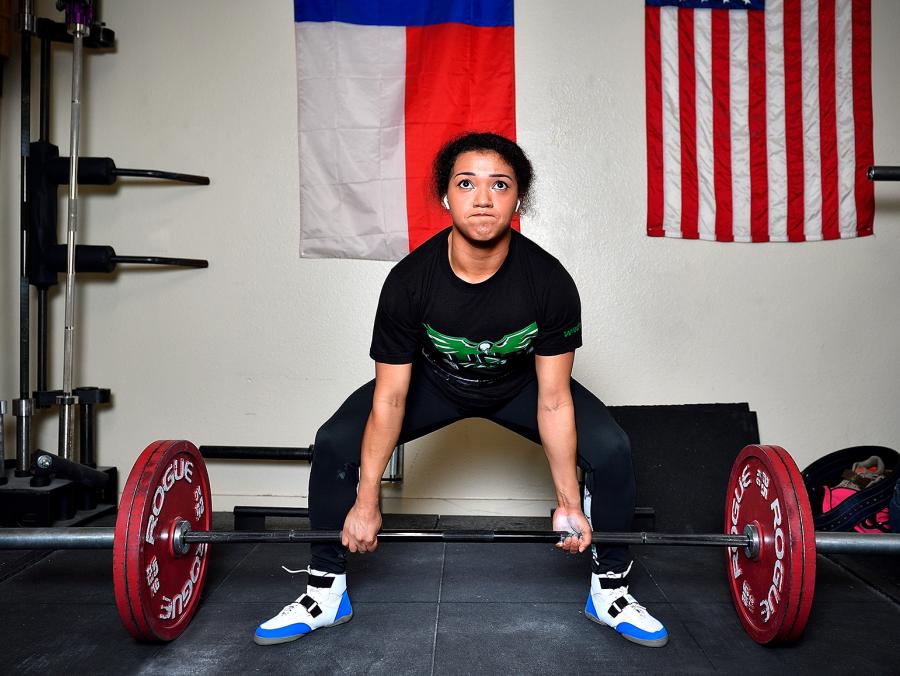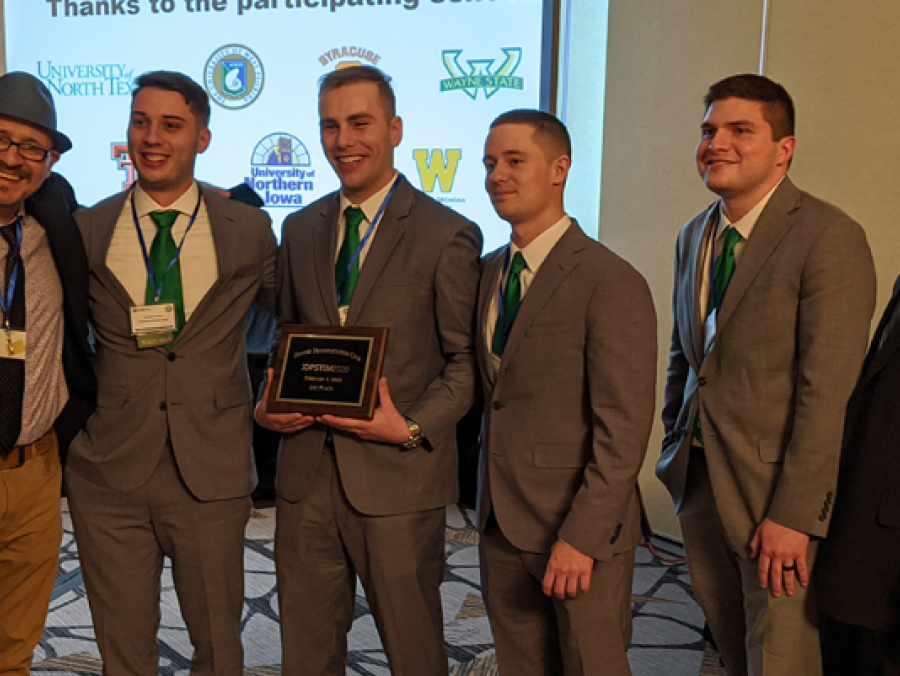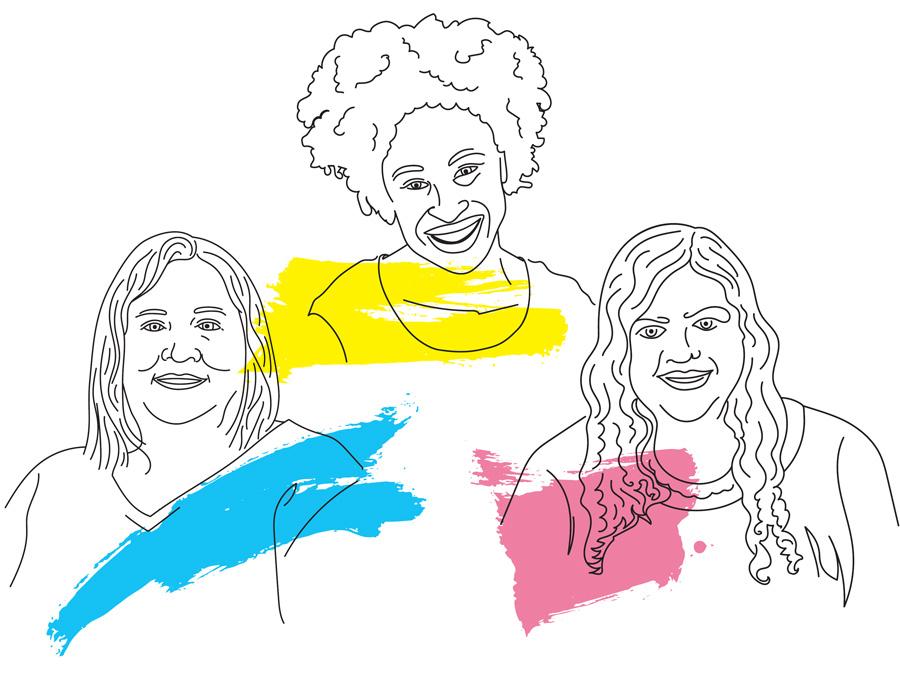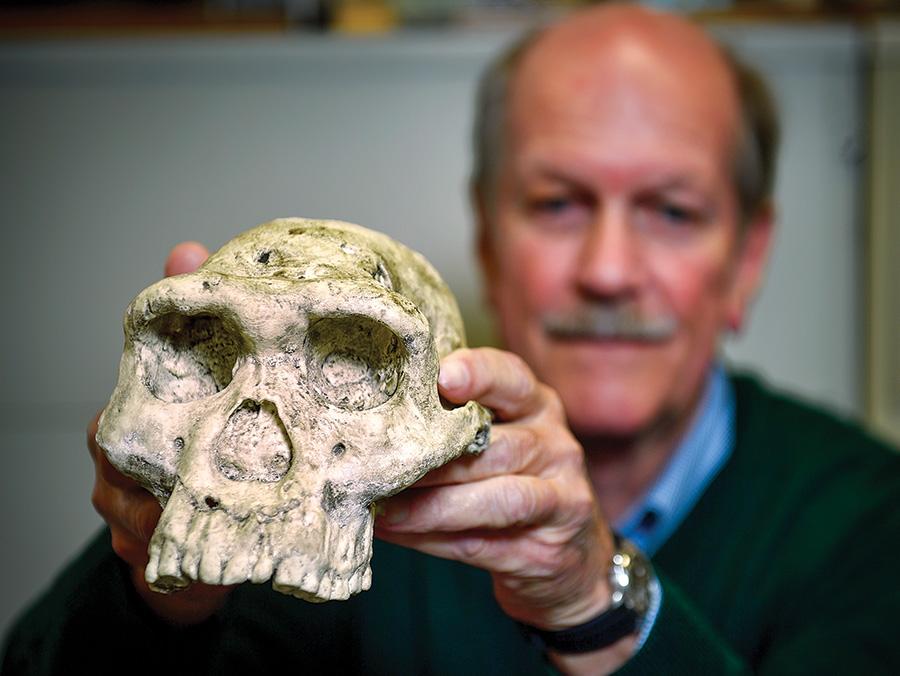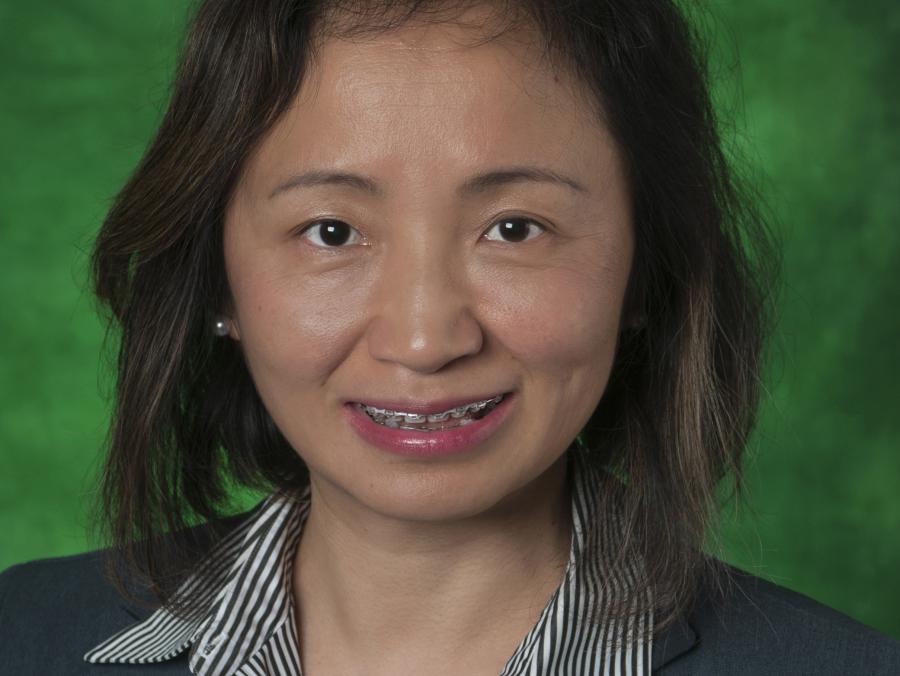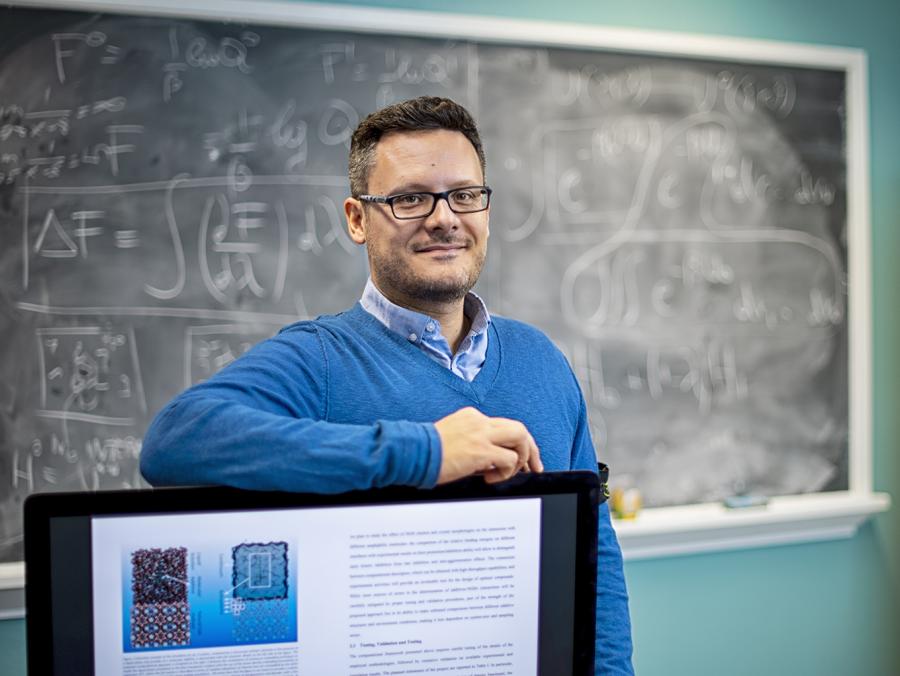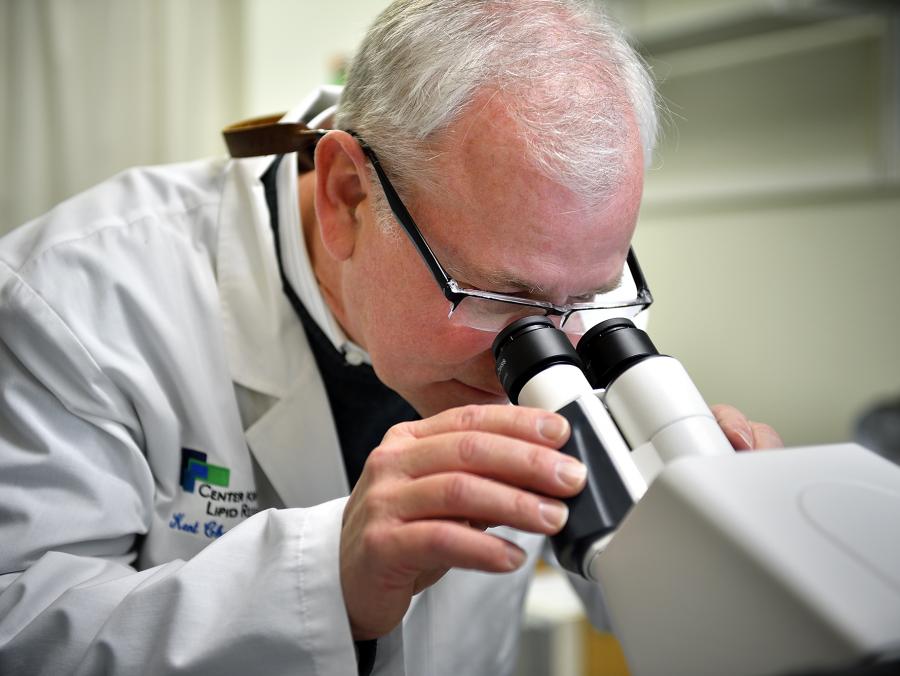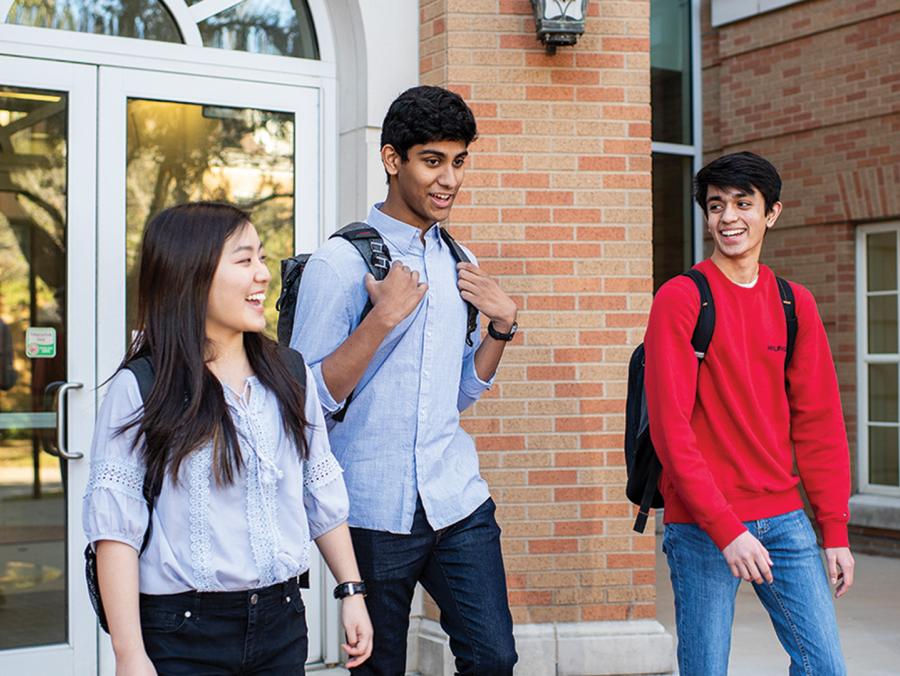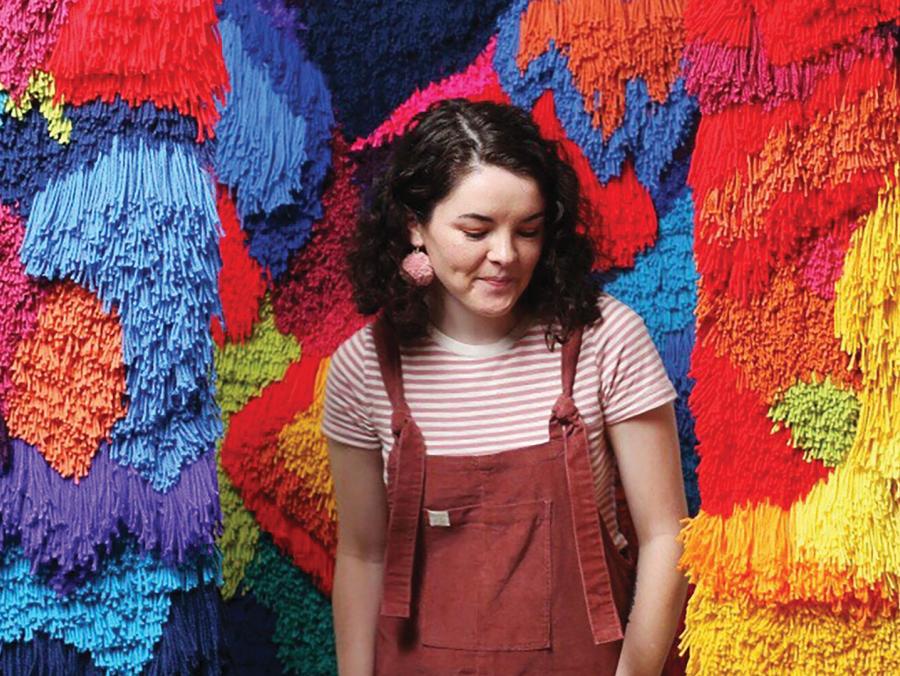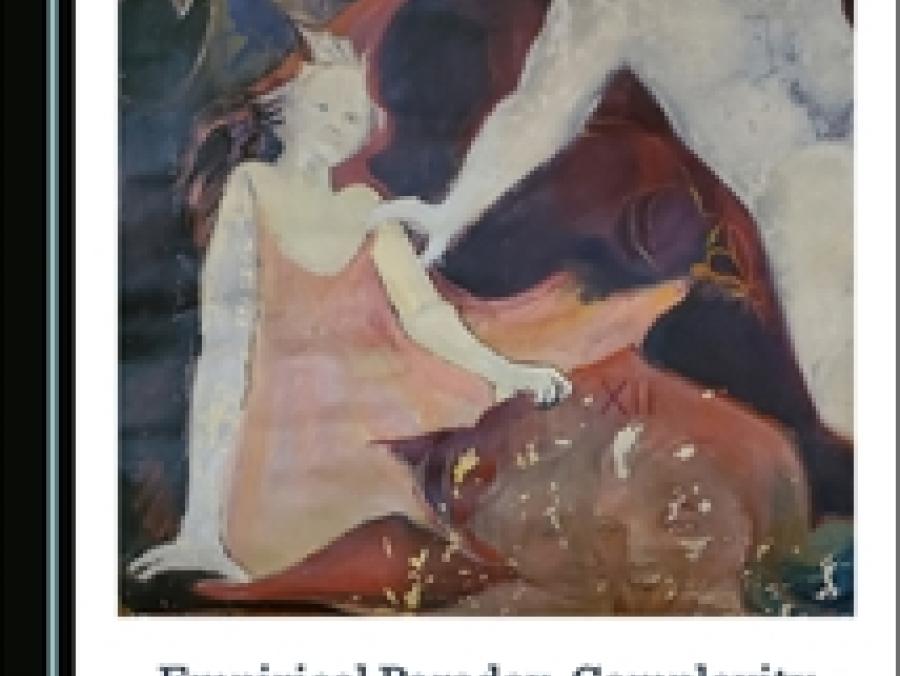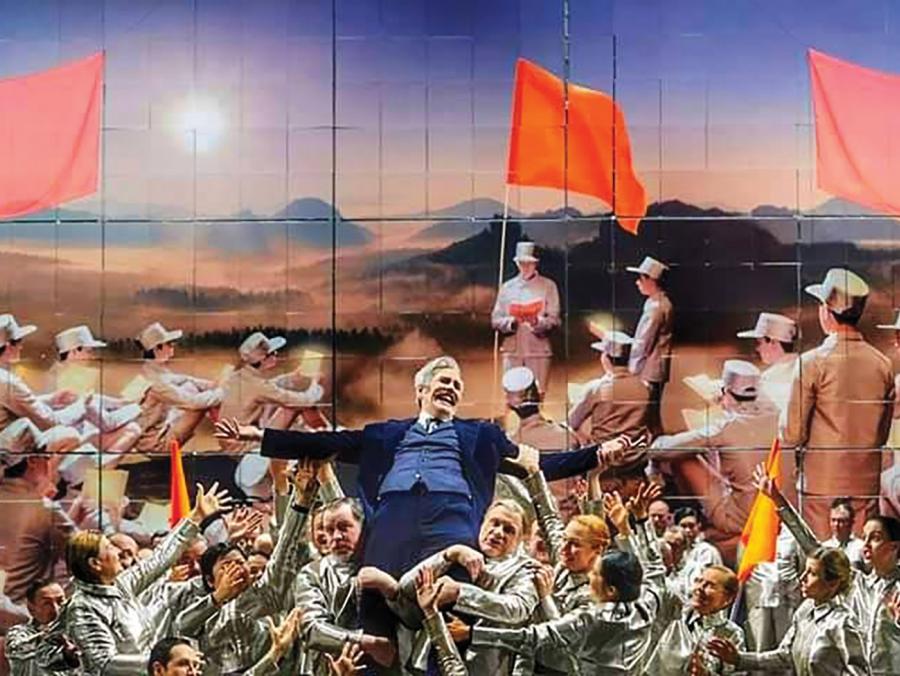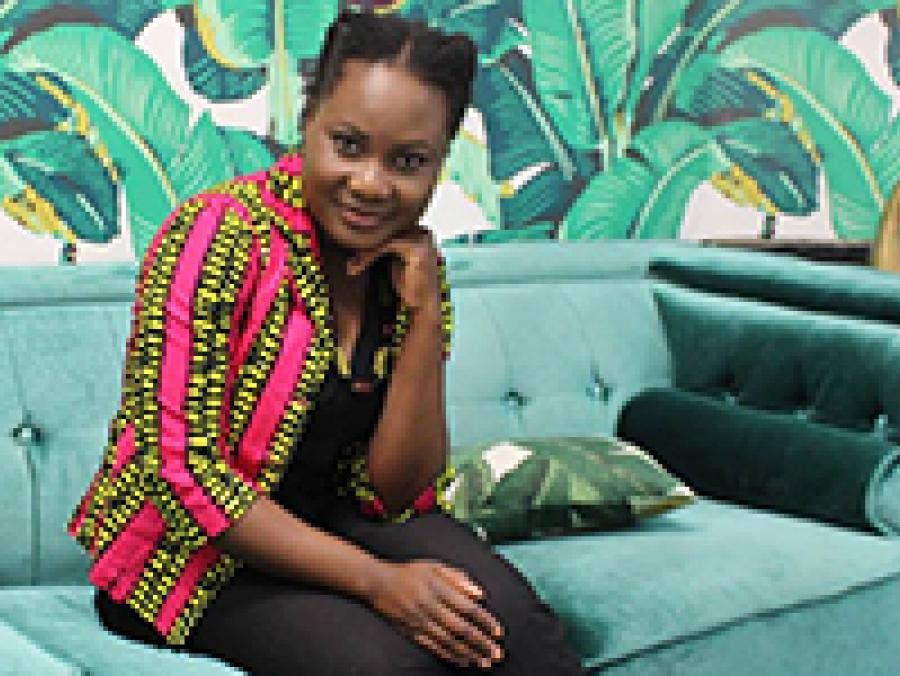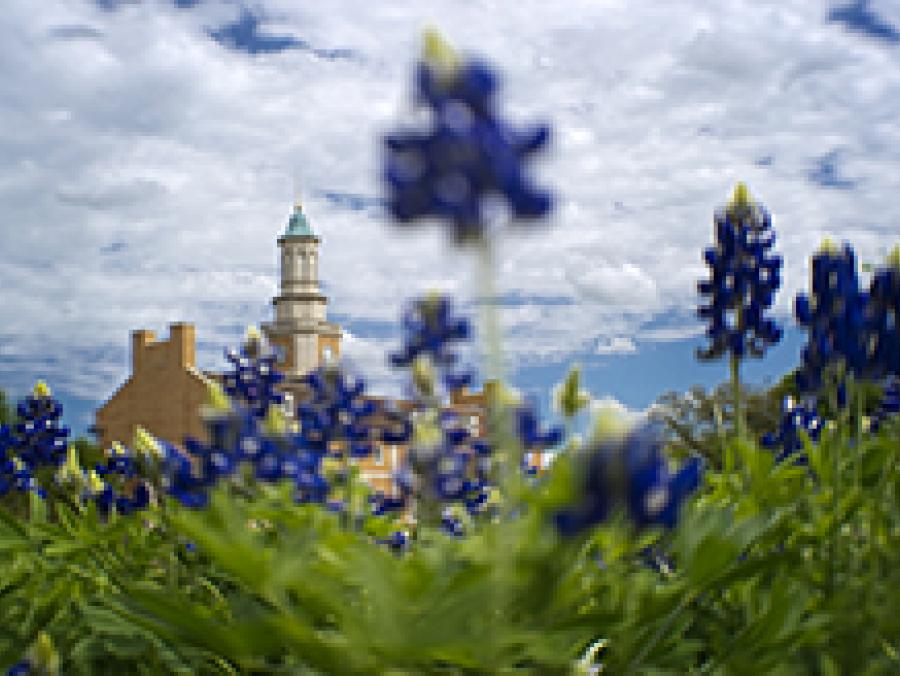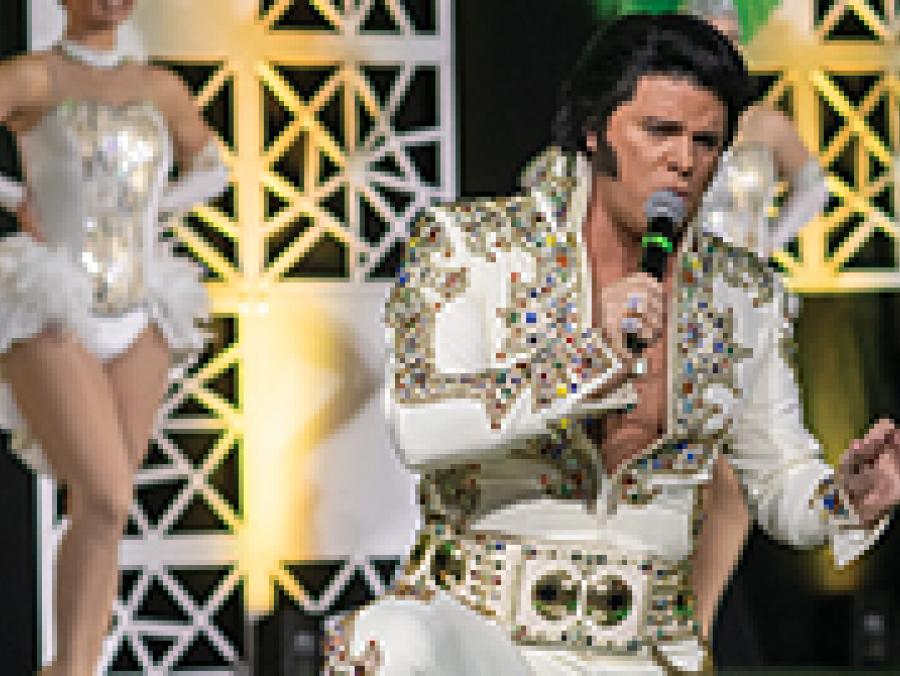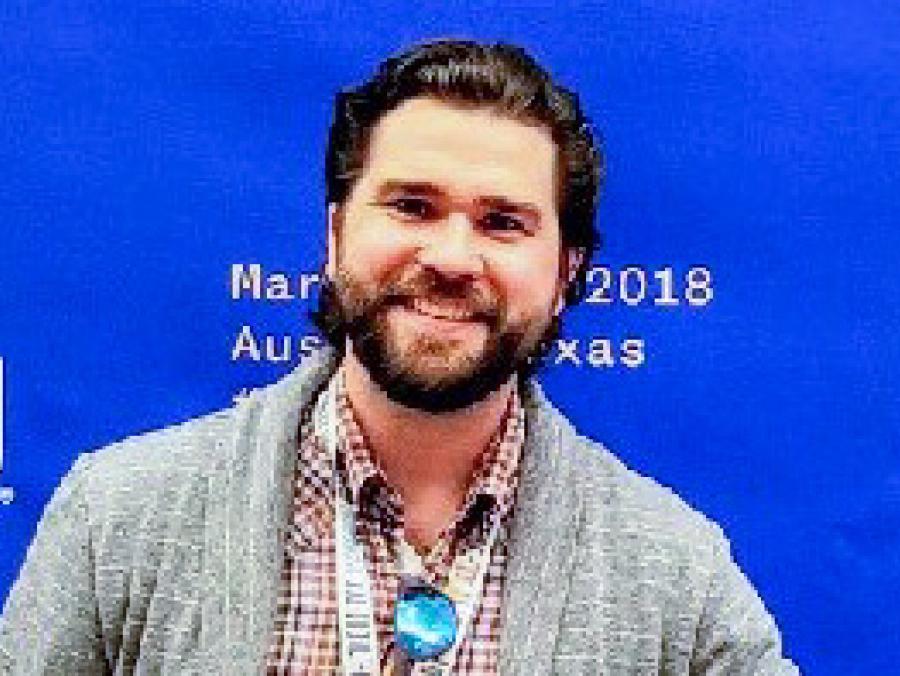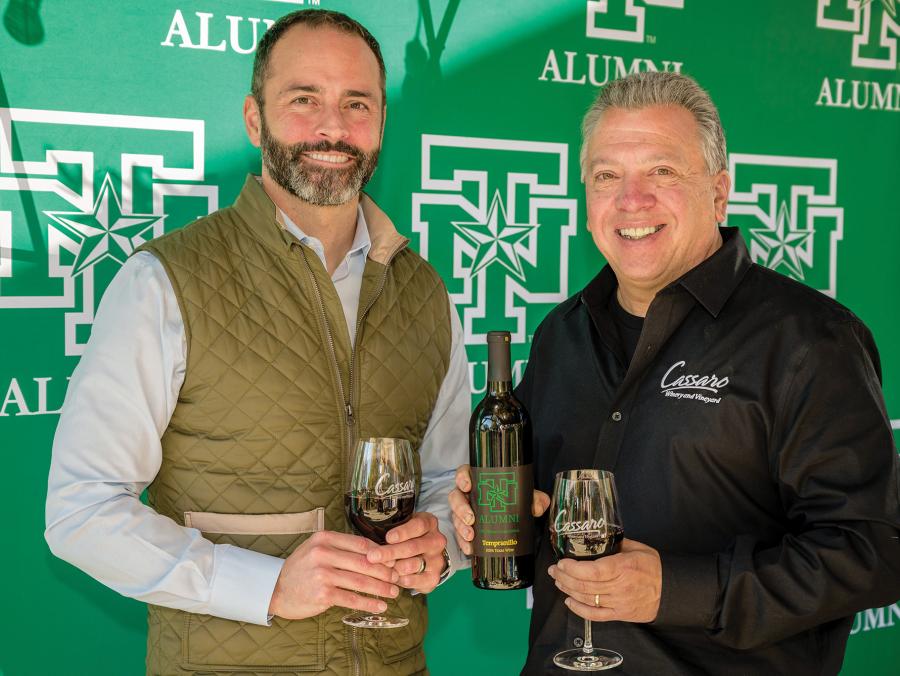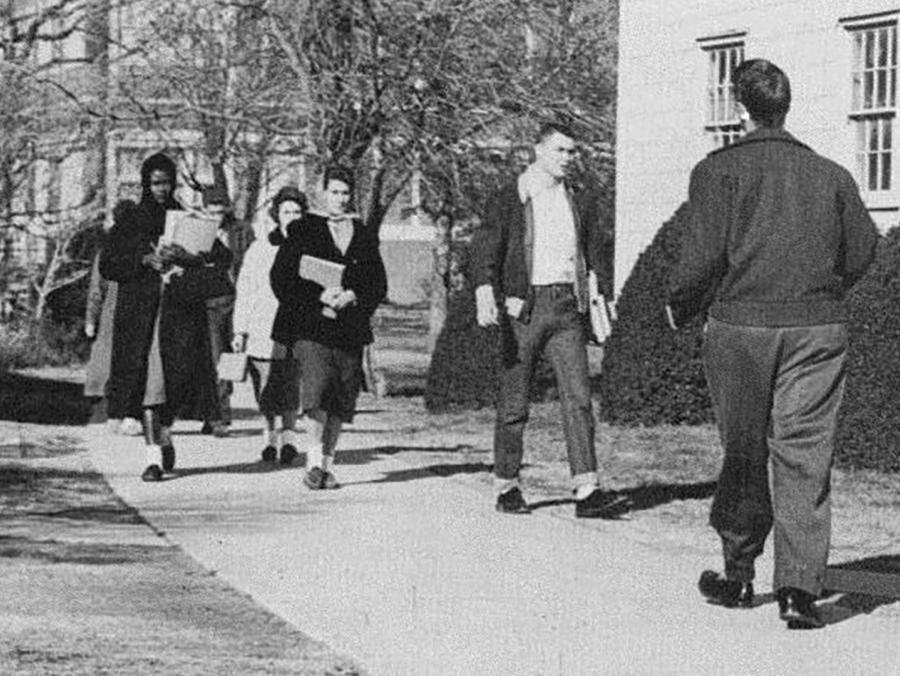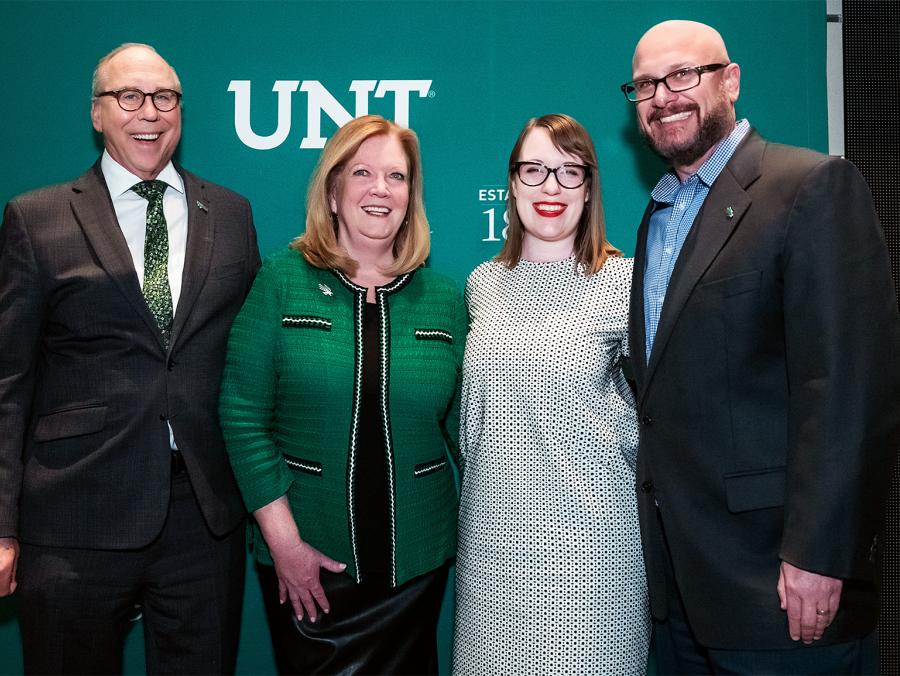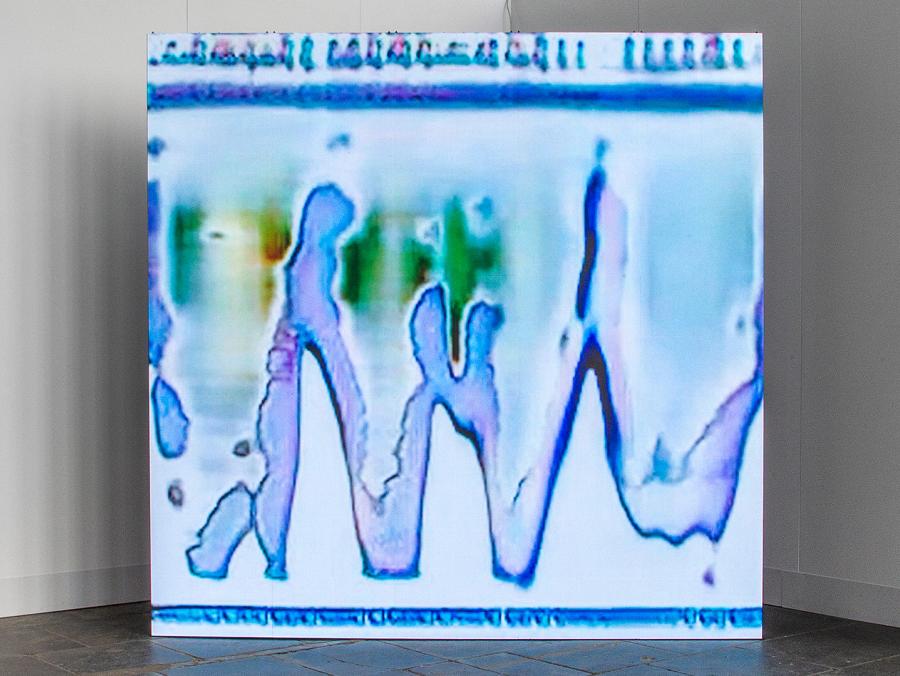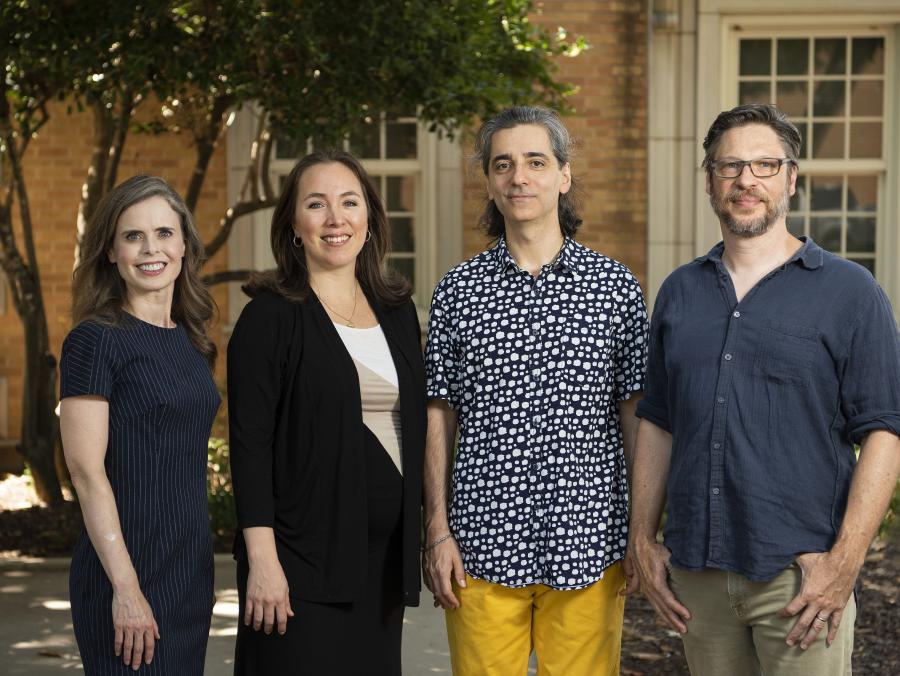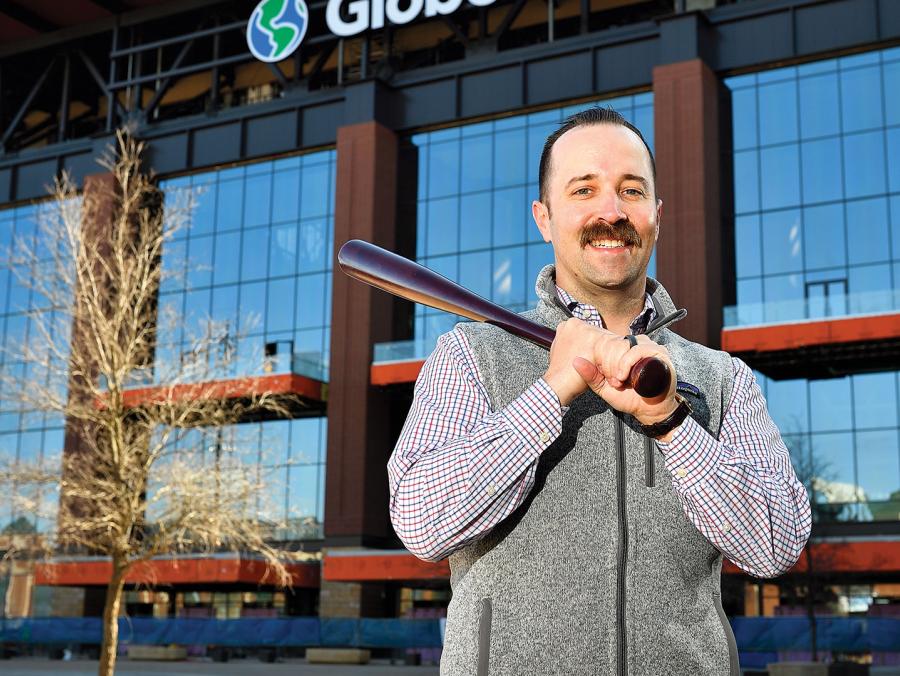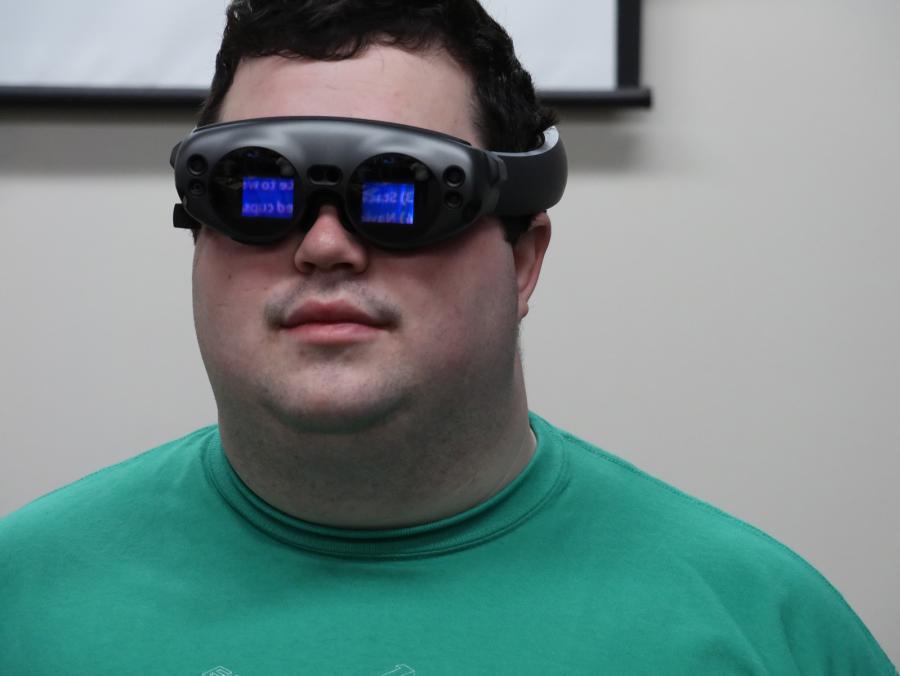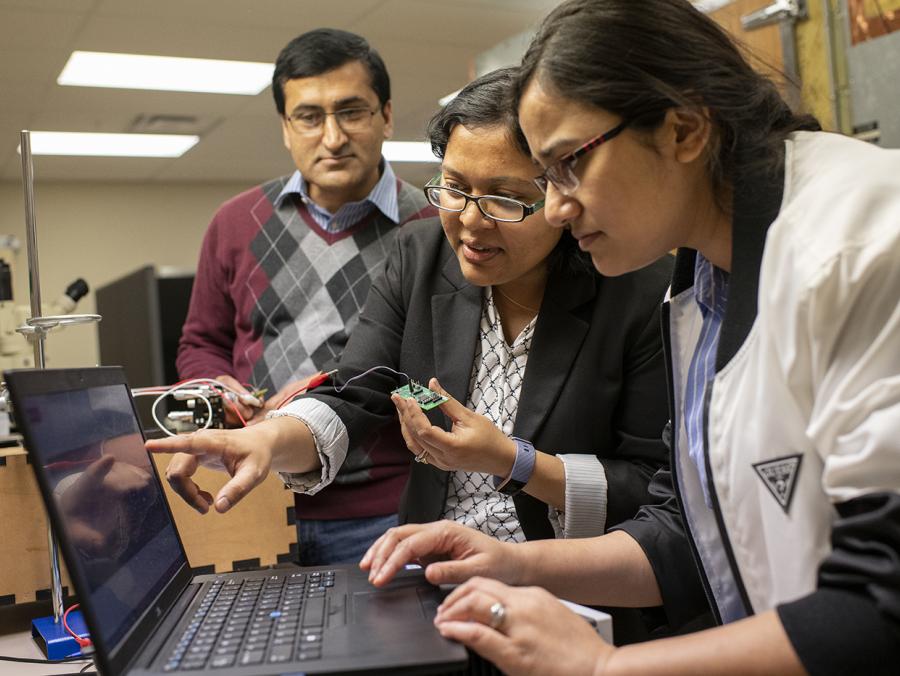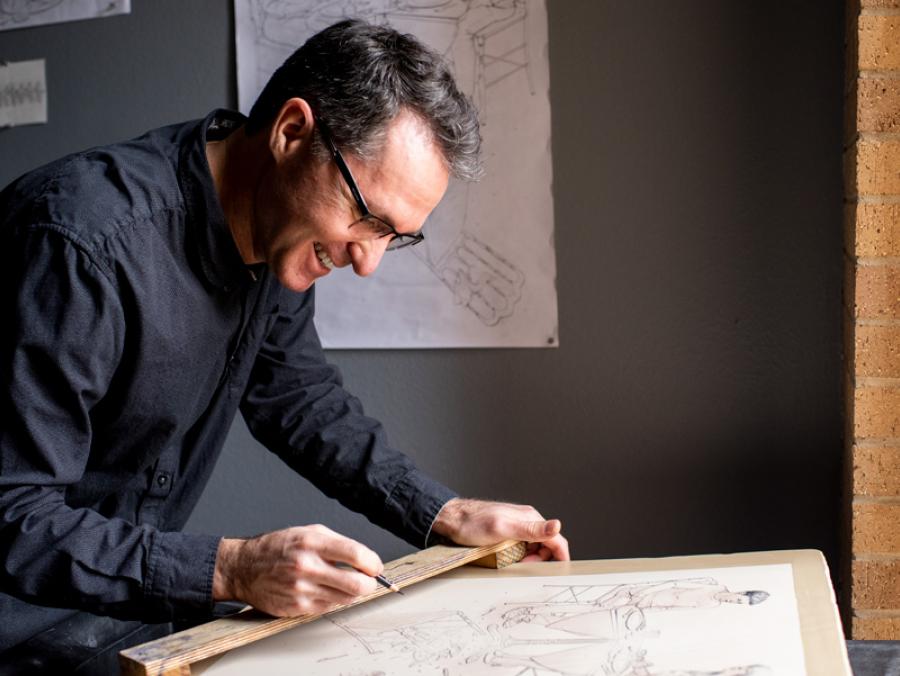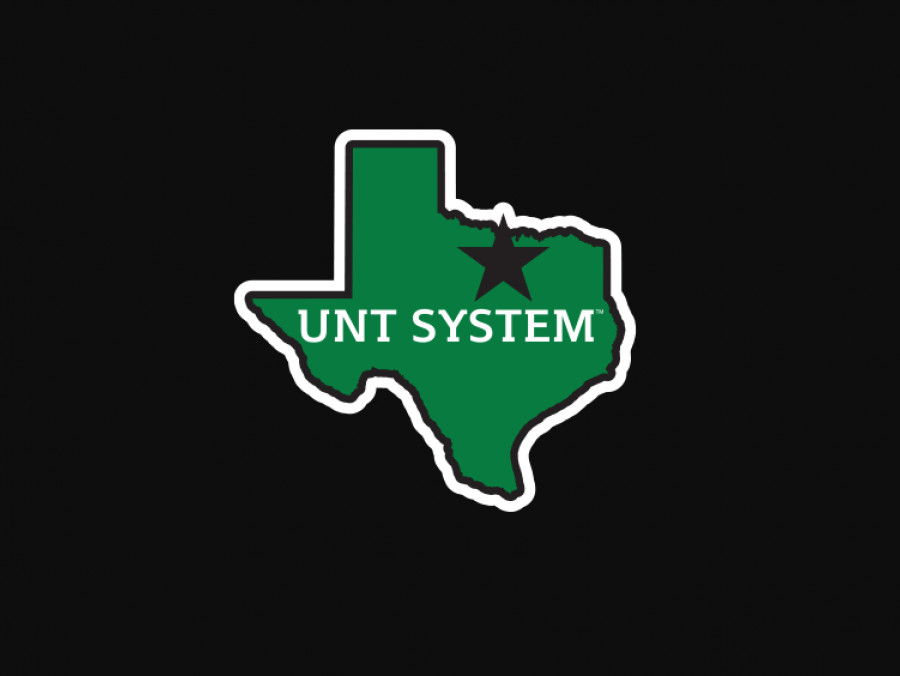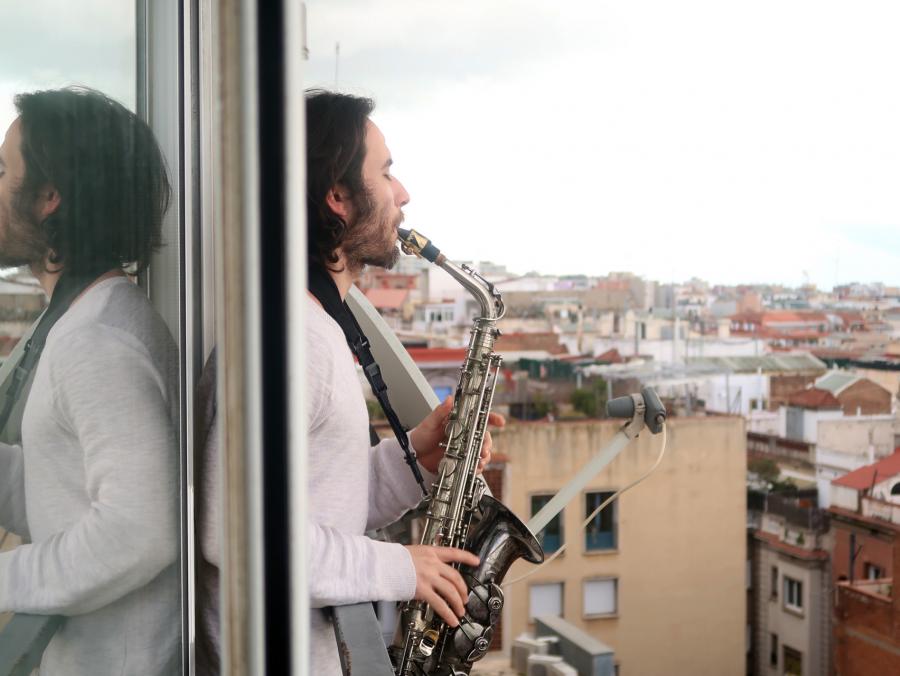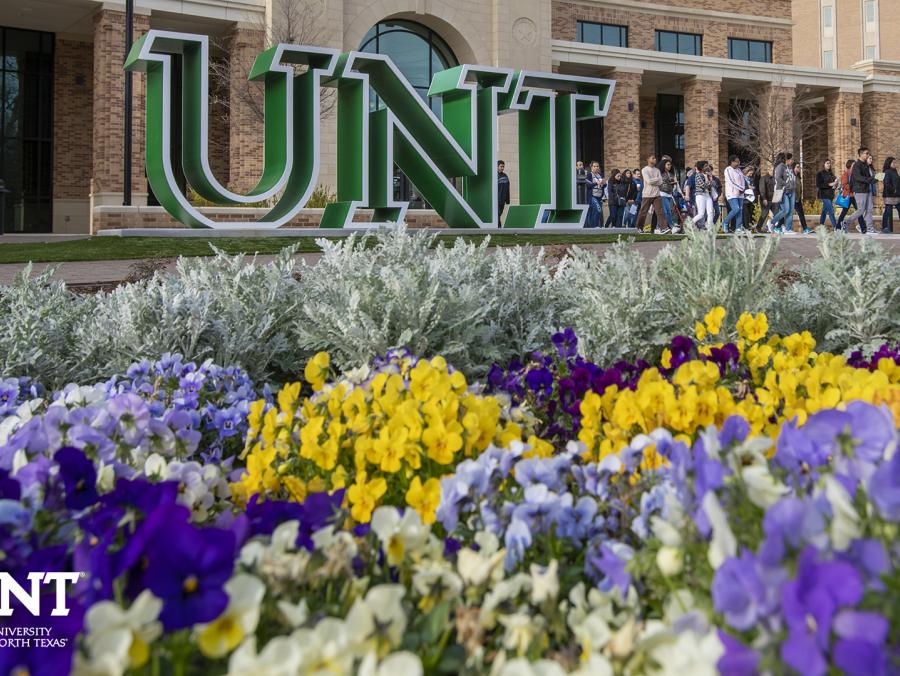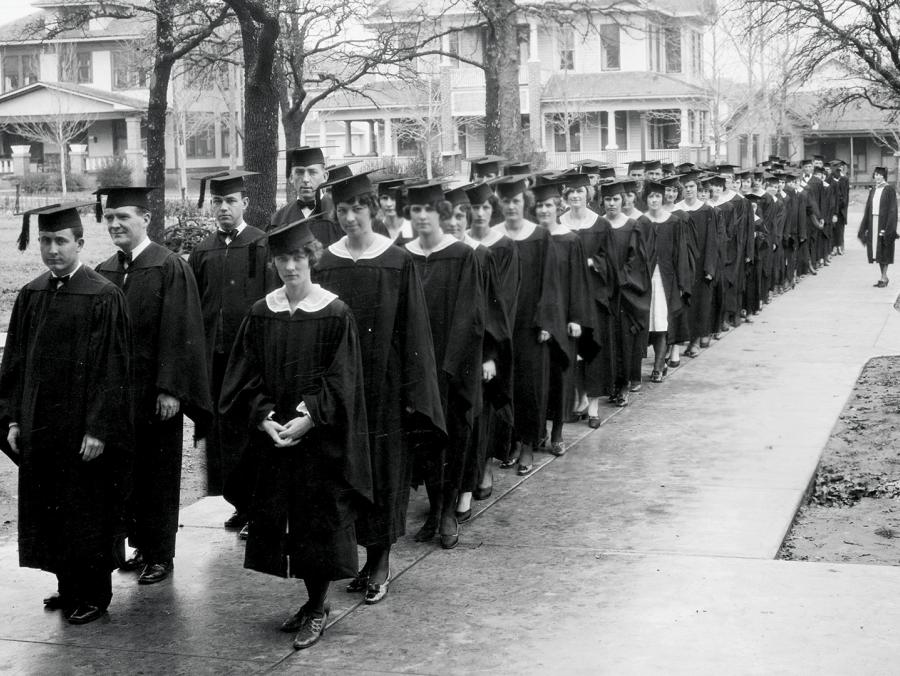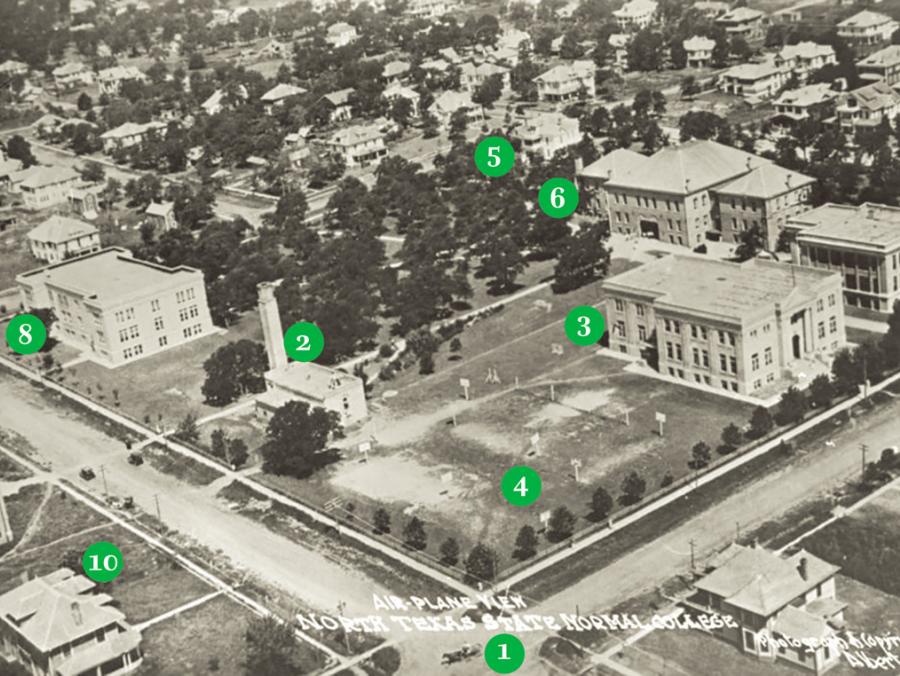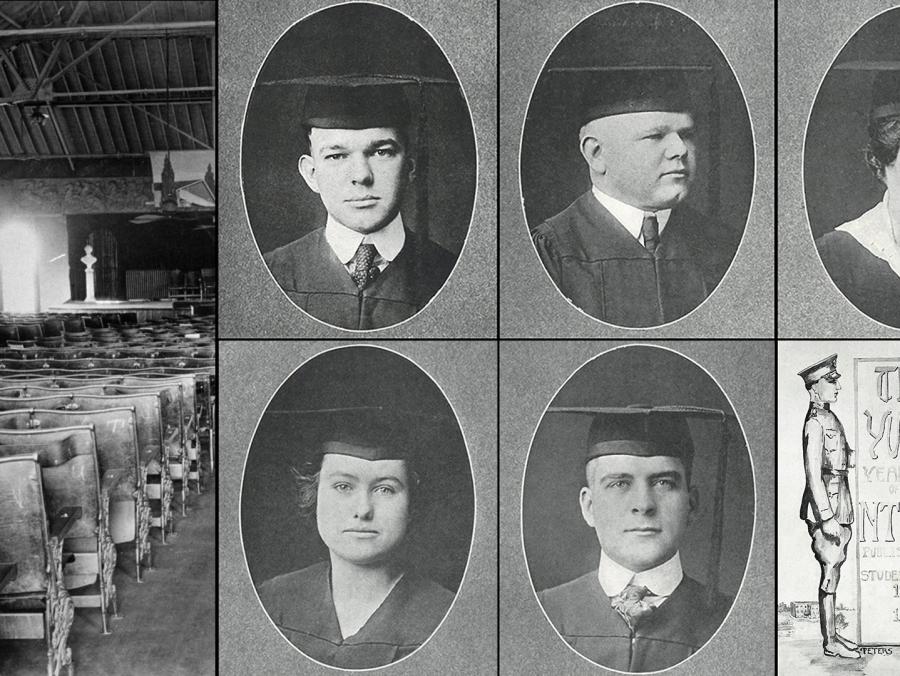n November 1890, the future UNT was struggling in its first year of existence. That September, while the details of a campus and new building were being worked out, the Texas Normal College and Teacher Training Institute had opened its doors in a temporary location — the second floor of a hardware store on the Denton town square (pictured above in the 1930s). About 70 students attended that first week, but more were needed to keep the school afloat.

According to James Rogers’ The Story of North Texas, that’s when founder and president Joshua C. Chilton got creative. He began looking for pupils from north of the Red River, in what was then known as Indian Territory. Details about the venture are scarce, but 28 members of the Muscogee Creek Nation, many from the towns of Eufaula and Wetumka, soon came to Denton. The assumption is that the school received money either from the federal government or from tribal school funds in exchange for educating the new pupils.
The students seem to have been brought in for the second 10-week term, which began Nov. 25, 1890. With total enrollment reported early that December as 131, the Native American students accounted for more than 20 percent of the student body. Rogers says that no existing records could be found that associate the students with any other time period at the school.
We do know more about them, though, thanks to a student list in the 1890-91 catalog that includes hometowns. Among the 28 students from "I.T.," who ranged in age from their mid-teens to early 20s, were future teachers and businessmen, a future Rough Rider, a doctor, a preacher, a county treasurer and postmaster. Several became members of the Muscogee Creek national council.
Here’s what we know about some of these early UNT alumni, based on information in census, birth, marriage and death records; citizenship enrollment cards; newspaper accounts; and some oral histories:

James H. Alexander from Wetumka, who studied in the commercial department, went on to serve as the Hughes County treasurer in Holdenville, Okla. Creek rites and Masonic rites were conducted at his funeral in 1932 and he was remembered as “an efficient and faithful servant of his tribe, his country, and his state.”
Lena Benson from Wetumka, who studied in the music department, became a teacher and married Johnson E. Tiger, the son of a chief. She mentions she attended "Denton Normal School" in a 1938 Works Progress Administration oral history, which includes some stories about her days in Wetumka and ends with recipes for cold flour and blue dumplings.
Walter K. Callahan from Muskogee went on to graduate from the Missouri Medical College in St. Louis. He became a physician appointed by the federal government to serve on reservations across the West.
Jeff Canard from Wetumka (listed as Jefferson Kanard in the catalog) later graduated from a school in Sedalia, Missouri. The great-grandson of a chief, he became a member of the House of Warriors. His sister, Lucy Dunson, mentions him in her 1937 oral history. Lucy was married to Sumner Hale of Arbeka, who attended the Normal College’s commercial department.
Emma Carr and Lydia Carr were sisters from Okmulgee who studied in the music department. Emma’s married name was later Anderson, and Lydia married a Hightower. She was Lydia Moore at her death in 1959.
Louis Deere from Eufaula (spelled “Lewis Deer” in the catalog) later married Jennie Williams, also a student from Eufaula — making them one of our earliest alumni couples.
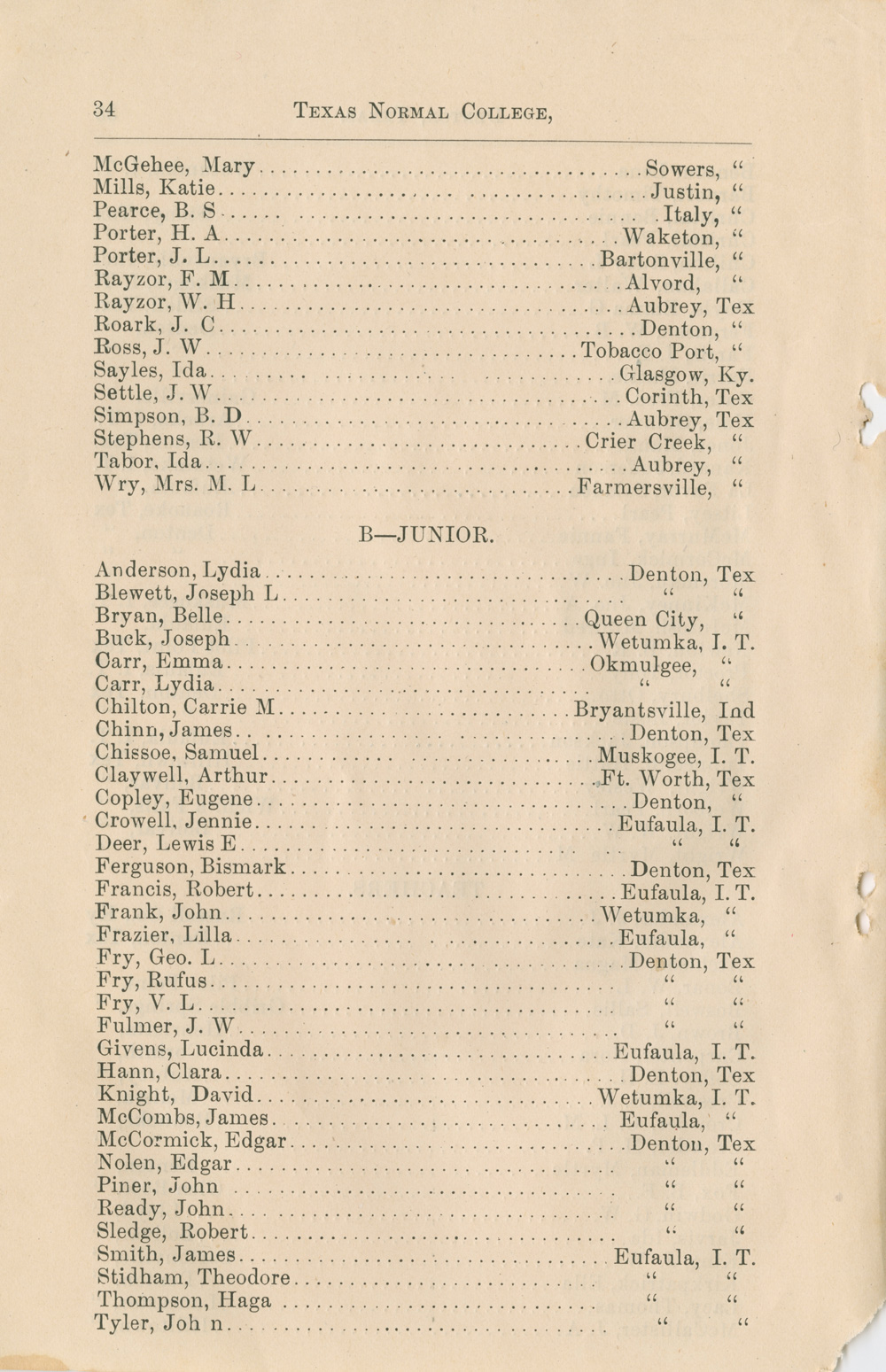
Lucinda Givens from Eufaula was the daughter of Choctaw Givens. She later married a Hawkins and her married name was West at her death in 1913.
James McCombs from Eufaula became the third pastor of the town's Tuskegee Indian Baptist Church, serving from 1907 until his death in 1928.
Mildred ‘Millie’ McIntosh from Eufaula went on to teach high school and served as secretary to the chief while her father was second chief. She also became a member of the House of Warriors and was elected its secretary. In her 1937 oral history (as Mildred McIntosh Childers), she says she was then the only woman to hold any official position in the Creek national council. She also lists “Texas Normal at Denton” as one of the schools she attended.
Jno. (John) A. McKinney from Muskogee studied in the commercial department. His 1920 obituary called him the first citizen of Checotah and a businessman prominent in the early affairs of the Creek nation, as well as an Odd Fellow, a Mason, a Knight Templar and a Shriner. The businesses in Checotah shut down for his funeral.
Tony Proctor from Eufaula studied in the commercial department and became a town commissioner, served as a postmaster in Trenton and worked as a bookkeeper in a dry goods store. He died near Okmulgee in 1910.
Theodore Stidham from Eufaula served with Teddy Roosevelt’s Rough Riders in the Spanish American War and became a tribal leader. He is said to be pictured in this 1910 photo with Roosevelt taken on Huckleberry Island in New York (located in the archives of the Oklahoma Historical Society). In 1905 Stidham was serving on the police force in Union, appointed by the Department of Indian Affairs. By 1910 he was the deputy sheriff in Muskogee County and he later worked as an oil lease broker. His father was the supreme judge of the Creek nation. At Stidham’s death in 1929, former Denton classmates remembered him as popular and bright.
Jackson Thompson from Eufaula, who studied in the commercial department, went on to work in a general store and later in the hardware business. He left a 1937 oral history in which he mentions he attended the Texas Normal College in Denton. His father was a judge and senator in the Creek government.
Other students from Indian Territory, according to the catalog list, were: Timothy Barnett, Wetumka; Joseph Buck, Wetumka; Samuel Chissoe, Muskogee, music department; Jennie Crowell, Eufaula; Robert Francis, Eufaula; John Frank, Wetumka; Lilla Frazier, Eufaula; David Knight, Wetumka; Saladen Watie LaFavor, Eufaula, commercial department; James Smith, Eufaula; Haga Thompson, Eufaula; and John Tyler, Eufaula.





